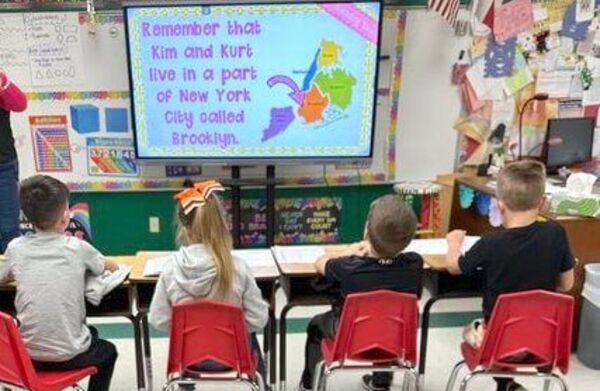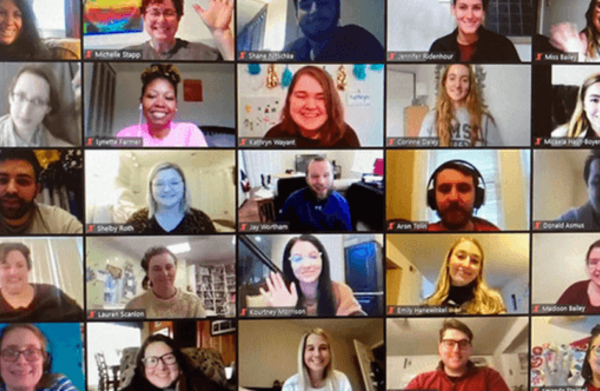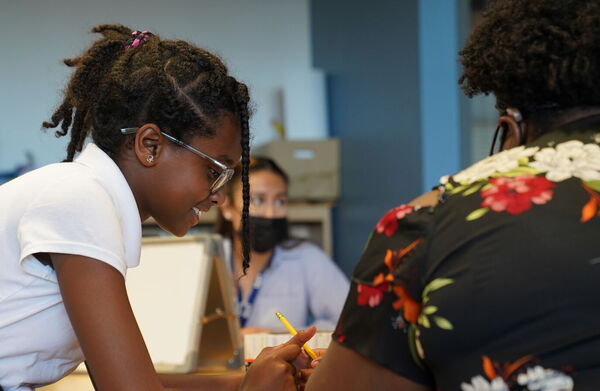Posted on
Aspiring teachers are inspiring. What if the quality of their preparation was too?
“Teaching is an oppressed profession.”
It was late last year. A group of teacher-candidates were seated in a circle at one of the institutions led by a Deans for Impact member. The candidates were in the midst of a discussion about race, class, and privilege when a young woman suggested that the profession of teaching should be included as an object of societal derision.
“I mean, we say that we value teaching in this country, but we don’t really value it… low prestige… low pay… low respect,” she said.
The room was silent.
For thirty seconds.
Maybe more.
From across the room, another teacher-candidate, a career changer, called out, “Yet here we are.”
Laughter.
Back across the circle, an early childhood educator working on a bachelor’s degree in teaching said: “That’s right. Here we are. Somebody has to be here. Somebody has to do the work that society doesn’t value. Somebody has to help kids who have been too often neglected.”
In my work at Deans for Impact, I have the great privilege of meeting aspiring teachers across the country who are deeply committed to a profession that they know is undervalued. In northern Nevada, a teacher-candidate told me, “Teachers have little power in the face of structural inequity. But it’s my teaching strategies that will lead children to learn.” In West Texas, candidates are passing up jobs in the oil fields that pay twice as much in order to influence future generations by becoming teachers.
Is this all just buoyant naiveté? Will inspiration dwindle once teacher-candidates hit the classroom and experience 12-hour work days, missing materials, and students each with their own unique needs? Perhaps. Teacher turnover rates would suggest it.
But what strikes me most about my conversations with aspiring teachers is their clear-headedness about the challenges of teaching. Teaching is complex work. It is exhausting work. One teacher-candidate recently said to me, “It’s 10 percent teaching, 90 percent social work.”
Schools of education have the responsibility of educating these inspired adults for a career in which they aspire to succeed. Therefore, ed prep programs must do whatever they can to give candidates the knowledge and skills necessary to make their aspiration a reality.
So, what can preparation programs do to keep aspiring teachers inspired throughout their careers?
First, provide them with the best support possible so they can hit the ground running. In survey after survey, teachers identify what they would have needed to feel prepared for the challenges of teaching: coursework tied to the practical realities of teaching, especially coursework in classroom management, learning science, and the effects of trauma; more time working one-on-one and in small groups before student teaching; extended experiences alongside skilled mentor teachers; frequent, immediate, and direct feedback. No program does all of these things well. But we’ve begun to highlight the efforts of several programs, like Arizona State University’s iTeachAZ, that prioritize many of these components.
Second, partner with school systems to rethink the arc of a teaching career. Through induction and coaching, Boston Teacher Residency and Hampton College of Education provide supports through the first three years of a teacher’s career. These programs recognize that teachers can be good on day one, but they need ongoing, differentiated support to be great over time. Programs can also create differentiated career opportunities for more experienced teachers. The University of Nevada at Reno partners with 66,000-student Washoe County School District to provide master teachers in the district with three-year assignments as full-time adjunct instructors in the College of Education. The master teachers refresh their careers by stepping out of the K-12 classroom for a period. Teacher-candidates benefit from the practical knowledge and expertise of these instructors.
Third, partner with school systems to reimagine teaching roles. Nationally, there is a lot of discussion about the need to reimagine the 19th-century industrial model of schooling. While much of that talk is hyperbolical, it springs from the reality that a single teacher covering prescribed content for roughly 10 months in a room of 25 (or vastly more) age-graded students may not be the ideal way for children to learn, or for teachers to thrive. Extending the reach of skilled master teachers and creating new roles for educators – as in the medical profession’s division of responsibility among doctors, residents, nurses, physician assistants, etc. – must be part of the effort to reimagine schools. Dean Carole Basile, who is leaving the University of Missouri – St. Louis this summer to take over at Arizona State, established a school-wide initiative at UMSL to do just that.
Are these changes easy? Definitely not. But children deserve teachers who are inspired and supported to do great work everyday. Talk to an aspiring teacher and you’ll understand why.
Related Stories:


Blog
Q&A with Dr. Natalie Bolton: How UMSL is aligning around learning science
For the last two years, faculty and staff at the University of Missouri—St. Louis have redesigned...
October 19, 2021

Blog
Creating a future where every child has access to well-prepared teachers
We work across levels of the system to ensure that all students have access to great teachers.
September 12, 2023





